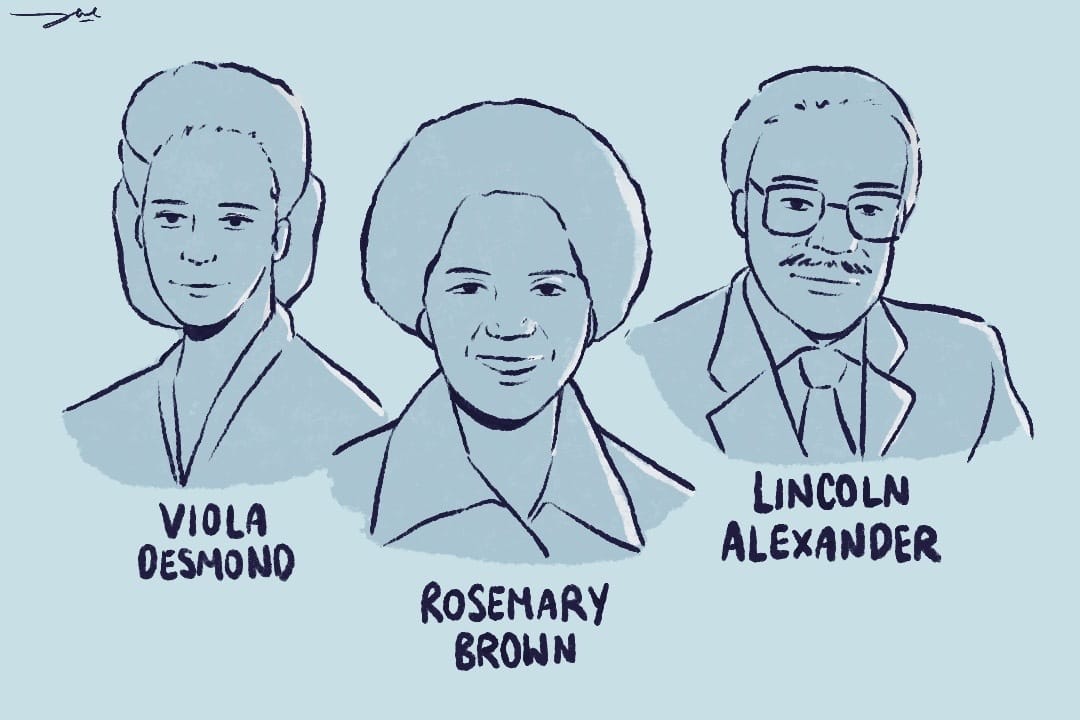While Canada presents itself to the world as a nation whose history is untainted by the harsh reality of the enslavement of Black people, this is far from the truth. In 2009, former Prime Minister Stephen Harper once said that Canada has “no history of colonialism.” I’ve seen many Canadians unaware of the fact that Canada has a long, harrowed history with Black people that dates back to around 1629 when European settlers brought the first enslaved people to Canada.
As I write this article, I must admit that I am still in the process of learning Canada’s history with Black people. However, understanding this history is crucial to exploring the significance and evolution of Black History Month (BHM) in Canada.
Americans have celebrated BHM since President Gerard Ford officially recognized the month in 1976, right after the peak of the Civil Rights Movement. On the other hand, Canada has a comparatively shorter history of recognizing BHM that dates back to 2008, when the Senate approved to officially recognize the month. To me, the rise of the Black Lives Matter movement in 2020 ignited a spark that I believe began Canada’s larger social recognition of BHM.
In February 2019, a group of students and I presented a campaign in our high school in Saskatchewan to raise awareness about BHM. We were met with backlash from the faculty and told that celebrating BHM was “unfair” to other ethnic minorities. This sentiment is common among Canadians and extremely problematic because it sets the precedent that Black Canadian history is irrelevant.
Celebrating BHM in Canada does not diminish the identities and experiences of individuals from other ethnic groups. Rather, it is a month to acknowledge the history and contribution of Black people in Canada. A little more than a year after our campaign, following the killing of George Floyd, it seemed to me that my high school suddenly realized the importance of BHM — as many other Canadians did.
It should not take a tragic event for people to realize the importance of BHM. George Floyd did not need to lose his life for the world to open their eyes to the realities of the experiences of Black people. But unfortunately, that is what happened. Although Canada acknowledges BHM, I believe there is still a long way to go in educating Canadians about the history of Black people in Canada.
A fractured history
I’ve noticed that many are shocked to find out that Canada practiced slavery for over 200 years, enslaving over 4,000 individuals of African descent. Although Nova Scotia was a settlement for formerly enslaved individuals, Black people in Canada were not always free. Many enslaved people were brought into “New France” — now Canada — starting in 1628, and they later settled in Nova Scotia.
Today, African Nova Scotians still face many health and social disparities because of the centuries of hardships they suffered and because of existing systemic racism. Additionally, Ontario and Nova Scotia had legislature supporting racially segregated schools. It was not until the Canadian Human Rights Act was passed in 1977 that racially segregated schools began to close, with the last one closing in 1983.
In a 2019 interview with CBC, historian Afua Cooper calls Canada’s silence about slavery an “erasure of Blackness,” and I agree. Generally, Canada has hidden its unpleasant history with people of colour in the name of presenting itself as a peaceful country where everyone is free to be themselves. This is not the reality.
While Canada is making steps towards reconciling the disparities that Black Canadians face, there is still a significant gap in our knowledge of the history of Black Canadians. When asked about the history of Canada in a class survey, only 26 per cent of UTSC students in the PSYC12 — Psychology of Prejudice and Oppression class I took in the winter of 2024 were aware that Canada has an over 200-year history of slavery.
What can be done to address it?
As an immigrant to Canada, it has been important for me to educate myself about Canadian history. I believe that all people who have the privilege to live on Indigenous land should do their due diligence to understand the history that has led us to where we are as a nation. The Canadian government — specifically the Canadian Museum for Human Rights — has helpful resources about Canada’s history.
Additionally, U of T has courses such as UTSG’s HIS265 — Black Canadian History that detail the history of Black Canadians and what that history means for Canadians today. While Americans are stereotypically “louder” than Canadians, I believe their “loudness” has allowed them to spread awareness about their history. Canadians need to be loud too. Canada has set a precedent to be neutral and peaceful, but sometimes that passes off as apathy. We need to be louder and amplify the voices and history of Black Canadians.
Black Canadians have been extremely influential and beneficial to the nation, and it would be a shame to disregard what we have brought to the table. Looking ahead, I am hopeful that we will live in a nation that acknowledges and celebrates Black History Month genuinely and not to save face. While we have made strides in the last few years, Canada needs to step up and educate its people about the history and ongoing challenges Black communities face. It is my hope that this collective effort will foster greater understanding, empathy, and solidarity, leading to a more inclusive and equitable society for all.
Ewa Akomolafe is a fourth-year student at UTSC studying psychology. She is the co-president of UTSC’s Future Black Physicians Club.



No comments to display.